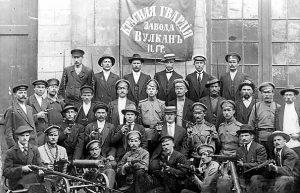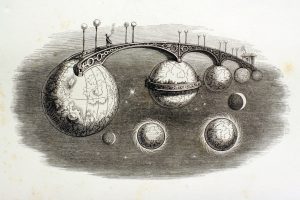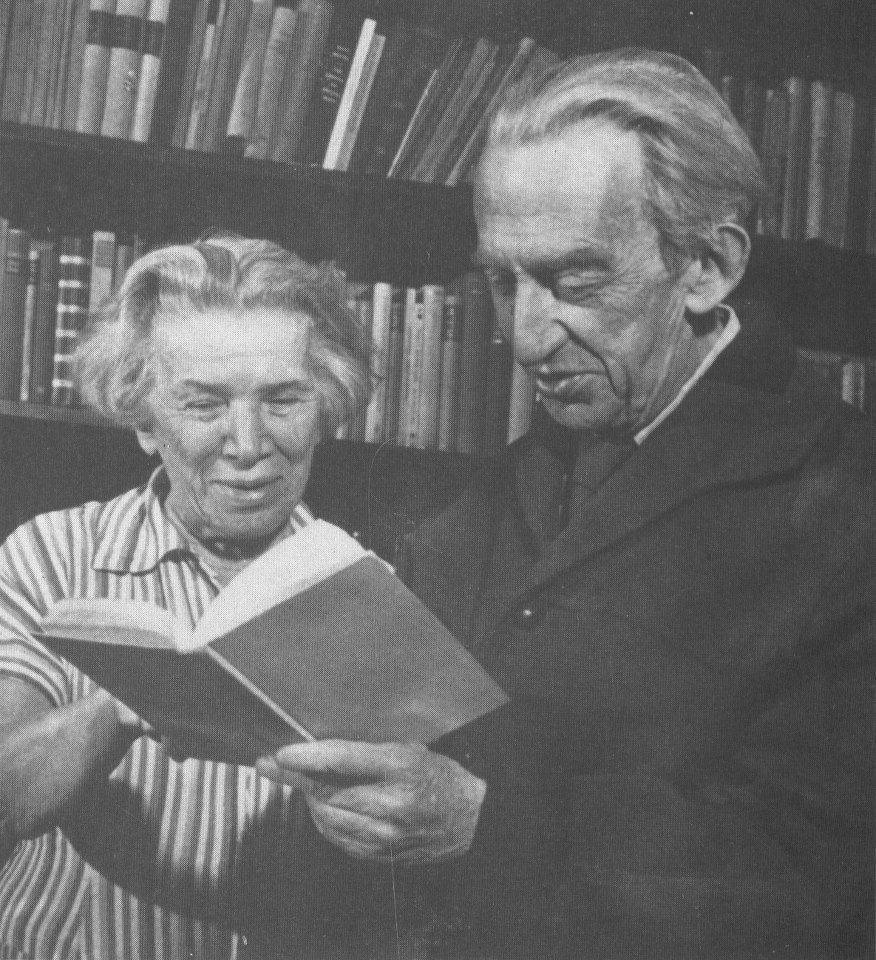Axel Honneth’s Reification. A New Look at an Old Idea (2008) and Andrew Feenberg’s Philosophy of Praxis (2014) represent two recent publications, which give a clear indication of the revived theoretical interest in a classical concept of critical theory. It is the concept of reification as was shaped by Georg Lukács in his legendary book History and Class Consciousness (1923), to whose analyses both theorists refer.
Both contributions are of great importance for a new account of critical theory’s basic theoretical tools: As is well known, the concept of reification played a crucial role in the tradition of critical theory from its initial formulations by Horkheimer and Adorno to Habermas’s Theory of Communicative Action (1981). They become even more important if we consider the tendency of the younger generation of critical theorists, who are inspired by Habermas and his turn towards liberalism and pragmatism, to totally abandon this classical concept as irreversibly outdated.
However, although Honneth and Feenberg share the conviction that the concept of reification is still worth reflecting upon, they choose different, even contrasting ways of reconstructing it. Thus I wish to make a short comment on the actuality and the theoretical credibility of their interpretations of the Lukácsian concept of reification.
I shall start with the issue of the respective actuality of these interpretations and then I shall move on to some deeper philosophical questions raised by them. Honneth’s interpretation of reification in terms of his theory of recognition has the unambiguous consequence of its de-radicalization. I shall come back to this aspect later – for now it suffices to note Honneth’s repeatedly expressed reservations about Lukács’s radical critique of capitalist economy and modern bureaucracy, i.e. those social structures, which Lukács eminently associated with the phenomenon of reification.
Following Habermas, Honneth connects the error of an overly radical critique of the differentiated structures of the so-called “system” with the idealist philosophical presuppositions of the philosophy of subject and the paradigm of production espoused by Lukács. Therefore he searches – following another intellectual habit of Habermas – for an “unofficial” version of the concept of reification that supposedly took the form of an “oblivion of recognition” in man’s practical relation to his environment and above all to other human beings. This is of course a version that fits the communicative critical theory and especially the theory of recognition introduced by Honneth himself.
When Honneth first published his Tanner Lectures on reification in German in 2005 his argument seemed much more convincing when it dogmatically presupposed a politically neutral, unquestionable “efficacy” of instrumental action and its systems. This presupposition of the inescapability of “differentiated rational systems” in the modern world mirrors nothing but a widespread prejudice of the Habermasian critical theorists during the last thirty years. It determines a fashionable way of posing the question of the tension between capitalism and democracy in terms of their complementarity and not so much in terms of their oppositeness. But it is exactly this efficacy which is increasingly called into question since the beginning of the global economic crisis in 2008 – the very same year the English translation of Honneth’s book appeared.
In the aftermath of the bank-collapse and the resulting economic recession in the developed world we continue to experience the defaults of whole countries and the subsequent “bailing-outs” accompanied by the imposition of extremely neoliberal austerity measures that constantly make financial problems worse. This is especially the case in Europe. At the same time, formal democracy becomes an empty shell under which conservative, authoritarian, even fascist, political tendencies grow – not to speak of the war scenes that are multiplying around the globe. Under these conditions it is no wonder there is an increasing number of voices demanding a new social economy and a real democracy. And one should add to that the culmination of the anxiety in view of the upcoming climate change and ecological crisis in general.
Today’s multifaceted crisis nourishes the feeling that we are not facing this or that particular problem but a general crisis of the dominant system and its rationality as a whole. Therefore, if in 2005 Honneth was in a position to claim that Lukács’s radical critique of capitalist and bureaucratic rationality is outdated, today we are rather inclined to think that Honneth’s moderate critique, which leaves the core principles of the global system untouched, is rapidly losing the ground to which it could be applied.
The crisis and the new consciousness that grows out of it represent, as Lukács would like to have it, the first stage in a process of de-reification through the practical resistance of those who are being destroyed by the dominant social structures and principles. Undoubtedly, this context renders an explication of crisis on the basis of a deeper inadequacy of these structures – like the one detected by the theory of reification in its classical formulation – more attractive and interesting. This is the case in Feenberg’s reinterpretation of the Lukácsian concept of reification.
Let us now turn our attention to the respective content of the two interpretations under discussion. As I  have already suggested, Honneth lets the greatest part of Lukács’s analyses on reification disappear from his reconstruction and highlights only some less important dimensions, that conform with his theory of recognition. He totally forgets Lukács’s critique of commodity fetishism as real abstraction (Realabstraktion), and his consequent critique of abstract thought and calculative intellect, which permeate both the capitalist economy and the bureaucratic organizations.
have already suggested, Honneth lets the greatest part of Lukács’s analyses on reification disappear from his reconstruction and highlights only some less important dimensions, that conform with his theory of recognition. He totally forgets Lukács’s critique of commodity fetishism as real abstraction (Realabstraktion), and his consequent critique of abstract thought and calculative intellect, which permeate both the capitalist economy and the bureaucratic organizations.
Thus, he deletes the part of Lukács’s theory that inspired the critique of instrumental reason of the Frankfurt School. He shows no interest in Lukács’s notion of crisis, his concept of totality – on which the explanation of crisis is grounded –, the notion of the historical “tendencies” and “processes” that should comprise human powers of resistance against reification. For him all these aspects and many others are part of an outdated, idealist way of thinking.
What remains after cleaning up the concept of reification from the rust of the past? Only a “thin” notion of reification as a lack of existential involvement of the individual in his social interactions with other individuals remains. This rather secondary dimension of the overall phenomenon of reification becomes its essence due to an eclectic reading of Lukács’s notion of a contemplative attitude.
However, by “contemplative” Lukács did not mean, first and foremost “psychologically detached” or “neutral” in opposition to “humanly involved”, as Honneth suggests. He rather described the passivity of subjects that take the social-historical world as unalterable in opposition to the active attitude of a subject that intervenes in the world in order to change its historically contingent necessities.
As this meaning of activity is suspect of conveying outdated Fichtean insights, Honneth prefers to reduce reification to sentimentally indifferent instrumentalization of others or even the self, aiming at the realization of egoistic goals. Through references to Heidegger and Dewey, Honneth connects this individual stance with the distancing of the individual from a fundamental dimension of being-in-the-world, namely its multifaceted participatory involvement and the recognition of otherness. Thus reification is oblivion of a fundamental anthropological dimension of our lives. As the historical understanding of reification drastically gives way to anthropology, it remains unclear what could be done in the interest of emancipation against the oblivion of recognition.
Let us turn to Feenberg’s reading, which could also be characterized as eclectic. However, I believe that it remains essentially faithful to the true spirit of Lukács’s classic book and at the same time it offers substantial updating of some of its core theses. Therefore, in what follows I will not distinguish Feenberg’s position from Lukács’ analyses, nor from my own understanding of them.
Against Honneth’s approach, Lukács opposed philosophical anthropology, which he justifiably viewed as abstract and ahistorical. Thus it is very unlikely that when he spoke of reification he had an anthropological concept of recognition in mind. In this respect, his analyses are clear enough: Reification must be understood as a historically changing, socially mediated phenomenon, which permeates the totality of social life at a certain stage of its historical development; namely in modern capitalist society.
This totality shows, in fact, a specific distortion, whose cause is not some mysterious “oblivion” of certain human reciprocal attitudes but the historically contingent prevalence of a specific, inadequate “form of objectivity”. Drawing on this fundamental epistemological concept of Neokantian philosophy, with which he was very well acquainted during his time of study in Heidelberg, Lukács seeks to theoretically grasp the fundamental social mediation of man’s relation to the world.
Thus, contrary to the Neokantians, for Lukács the “form of objectivity” becomes a social-historical – and therefore historically changeable – category of both the epistemic and the practical spheres of experience and human life. Through these modifications the “form of objectivity” becomes the conceptual basis for a “metacritique” of the established forms of cognition and action. According to Feenberg, this element of “metacritique” is typical of a certain kind of philosophizing, namely the “philosophy of praxis”.
On the basis of the concept of the “form of objectivity”, theory turns its attention towards social totality with its unitary organization of epistemic and practical activities. At the same time, it acknowledges the root of the crisis and fragmentation of this totality, since the “form of objectivity” proves to be inadequate for and in conflict with the content it forms and organizes. Indeed, the content overflows the form and questions its adequacy.
Thus, reification is a total social phenomenon caused by the inadequacy of the social form of mediation of an untamed and chaotic material. It results out of the violent imposition of form on material content, the otherness of which is violated and suppressed. At the same time the social form engaged in everyday practice appears as a “natural fact”, as an unalterable condition of human experience and praxis in general – this is what Lukács’ meant when he explicated reification as taking social relations as things.
 Thus the inadequate form of social mediation is naturalized and its domination is fostered and perpetuated – this is the case in periods of “normal” social life, when the resistance of the material is easily broken down. If the philosophy of praxis confined itself to describing this naturalization it would turn into a bare diagnosis of the final establishment of a dystopia; this is how the later Frankfurt School is often interpreted. Therefore theorists of the Frankfurt School’s second generation felt obliged to distance themselves, not only from such a diagnosis, but also from the conceptual framework upon which it rests.
Thus the inadequate form of social mediation is naturalized and its domination is fostered and perpetuated – this is the case in periods of “normal” social life, when the resistance of the material is easily broken down. If the philosophy of praxis confined itself to describing this naturalization it would turn into a bare diagnosis of the final establishment of a dystopia; this is how the later Frankfurt School is often interpreted. Therefore theorists of the Frankfurt School’s second generation felt obliged to distance themselves, not only from such a diagnosis, but also from the conceptual framework upon which it rests.
The shortcomings of the so-called “paradigm of production” supposedly block the theoretical grasping of the emancipative potential of modern social structures like individualism and its legal institutionalization, formal democratic institutions etc. It is certainly true that the “philosophy of praxis” is not so much concerned with justifying existing institutions – it rather aims at pointing out the ability of human action to alter them in such a way that they better correspond to the social needs and contents they are supposed to organize.
This process of transforming social institutions stands at the centre of Feenberg’s considerations on the dialectical mediation between reified structures and the active resistance of men. Their dialectical interplay, which is more or less missing from Honneth’s theory, is an essential part of Lukács’s holistic understanding of the dialectical interdependence between form and content. Feenberg justifiably stresses in his reconstruction the non-identity of form and content and the relative independence of the latter, in the light of which reification must be viewed as a historically finite social phenomenon that can be abolished in its present form: Firstly through the consciousness of its historical contingency, and secondly through conscious human intervention and modification of the fundamental form of objectivity and its institutional incarnations that effect reification.
Non-identity has a further anti-dogmatic meaning that discredits a great number of the critiques of Lukács’s theory – formulated, among others, also by Honneth: De-reification is not a final praxis of rational “production” of the object. As Lukács noted in 1923, it has to be viewed as a dynamic process of “unbroken alternation of ossification, contradiction and movement” (HCC, 199). Thus, within the Lukácsian perspective we should abandon the idea of a completely transparent and de-reified social condition and envisage a future in which a contradictory democratic control over all the fields of social life would at least be rendered possible. In my opinion, the philosophy of praxis in the form suggested by Feenberg represents a cogent and viable alternative to the de- radicalized anthropological interpretation of reification.
Konstantinos Kavoulakos is Associate Professor of Social and Political Philosophy, Philosophy of Culture, Department of Philosophy and Social Studies, Philosophical Faculty at the University of Crete. He received his Ph.D. in Social and Political Philosophy from the Panteion University of Athens. His primary research interests are located in the areas of modern and contemporary social and political philosophy, Kant and German Idealism, philosophy and critique of culture, philosophy of history, theories on democracy, and critical theory. His current work is focused on an investigation of the 20th century tradition of critical social thought from a contemporary perspective. Among a number of books he has written or edited, he is the author of Ästhetizistische Kulturkritik und Ethische Utopie: Georg Lukács’ Neukantianisches Frühwerk (2014) and Tragedy and History. The Critique of Modern Culture in the Early Work of Georg Lukács (2012).




